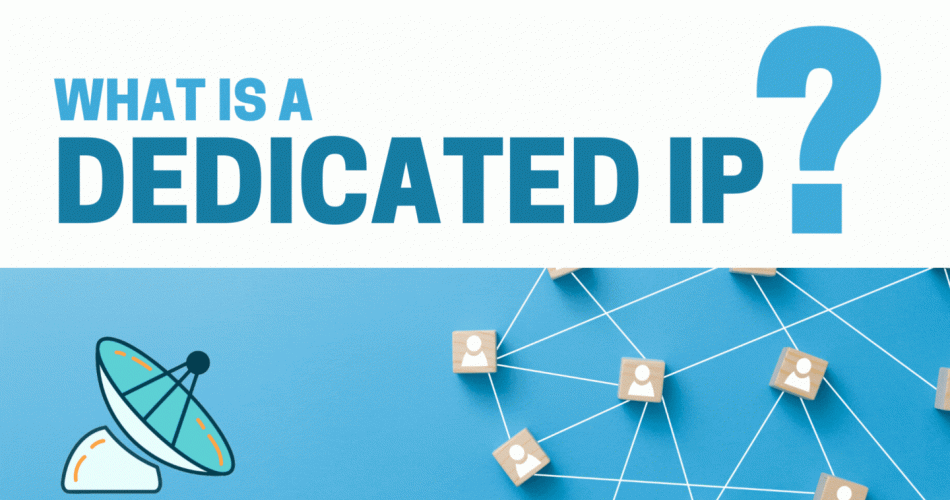A dedicated IP address is a unique Internet Protocol (IP) address that’s assigned to a single computer or device. This means that it can’t be shared with other computers or devices on the same network, which provides increased security and privacy for users who want to keep their information private.
Dedicated IP from ISP
ISP, or as abbreviated, Internet Service Providers, often provide Dedicated IP addresses as an add-on to an existing broadband/fiber network connection from them.
Dedicated IP allocation from ISP is also called Static IP in some countries, regardless, both mean the same.
Why do they provide Dedicated IP for users?
Usually, when you have a broadband or fiber connection from an ISP, each time your router/modem restarts, an IP from the available resource pool is provided.
Now, that’s not a problem for regular users, as their internet connection will work as intended without any hiccups.
However, if you’re having a home server or a server at the office that’s connected to the internet, whenever the modem or router restarts, your application will go offline for users using it through online mediums such as mobile apps.
In order to avoid such issues from happening, static IPs or Dedicated IPs are used.
You can purchase a Dedicated IP from your ISP and there will be additional charges, approximately $5 a month per IP (just approximate value, the price varies greatly depending on geography and company to company).
But once they assign that, your IPs no more change no matter how many times your modem/router restarts.
Dedicated IP from Web Hosts
In addition to ISP providers, web hosts also provide dedicated IP addresses.
In services such as VPS servers and Dedicated servers, Dedicated IP addresses are provided by default to the subscriber, allowing them to access their server using that particular IP address.
In shared hosting services too, IP addresses are provided, but in most cases, they are shared in nature. For example, the IP address you got assigned will also be used by 100s of other shared hosting clients.
However, shared hosting IP addresses do not change every once in a while as it does with ISP’s shared IPs. But still, you’re sharing that IP with others.
Sharing is not a problem until you have noisy neighbors.
For instance, if one of your fellow hosting users gets his account infected by malware and if that malware sends a ton of SPAM emails, there’s a great chance that all emails you send from your domain are also marked as SPAM in the recipient’s mailbox.
That’s because even though we see emails as easy-to-remember names such as [email protected], at the end of the day, emails are transported from IP address to IP address.
So, when an IP address sends SPAM, email systems usually mark that specific IP address from which it received a SPAM mail as a spamming IP.
Result? All shared IP users are affected as everyone’s emails are now being marked as SPAM emails by email servers across the globe disrupting enterprise communications of hundreds of companies.
In order to avoid getting emails blocked by recipient servers due to such a problematic neighbor’s fault, web hosting providers usually offer Dedicated IP addresses as an add-on.
That way, regardless of what your neighbors do, you and your business emails are not affected.
These days, most of the decent and premium cloud hosting providers monitor the mail usage of their clients to make sure no malware takes over and sends spam. Thanks to tools such as Imunify360 and MailChannels, such incidents are getting reduced drastically on web hosting services.
However, better ride safe than being sorry, right?
Conclusion
Hope this article gave you some knowledge on what a Dedicated IP address is and how it can save your day.

